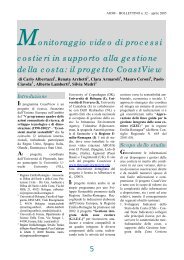The 21st Century climate challenge
The 21st Century climate challenge
The 21st Century climate challenge
You also want an ePaper? Increase the reach of your titles
YUMPU automatically turns print PDFs into web optimized ePapers that Google loves.
<strong>The</strong> moral imperative to tackle <strong>climate</strong>change is rooted above all in ideas about stewardship,social justice and ethical responsibility.In a world where people are often divided bytheir beliefs, these are ideas that cross religiousand cultural divides. <strong>The</strong>y provide a potentialfoundation for collective action by faith groupleaders and others (box 1.4).Box 1.4<strong>The</strong> economic case forurgent actionAmbitious <strong>climate</strong> change mitigation requiresspending today on a low-carbon transition. <strong>The</strong>costs will fall predominantly on today’s generation,with the rich world facing the biggest bill.Benefits will be distributed across countries andStewardship, ethics and religion—common ground on <strong>climate</strong> change1<strong>The</strong> 21 st <strong>Century</strong> <strong>climate</strong> <strong>challenge</strong>“We do not inherit the Earth from our ancestors, we borrow it fromour children”American Indian proverbSustainability was not a concept invented at the Earth Summit in1992. Belief in the values of stewardship, cross-generational justiceand shared responsibility for a shared environment underpin a widerange of religious and ethical systems. Religions have a major role toplay in highlighting the issues raised by <strong>climate</strong> change.<strong>The</strong>y also have the potential to act as agents of change,mobilizing millions of people on the basis of shared values to takeaction on an issue of fundamental moral concern. While religionsvary in their theological or spiritual interpretation of stewardship,they share a common commitment to the core principles of crossgenerationaljustice and concern for the vulnerable.At a time when the world focuses too often on religious differenceas a source of confl ict, <strong>climate</strong> change offers opportunities forinter-faith dialogue and action. With some notable exceptions,religious leaders could do more in the public sphere. One result isthat there has been insufficient moral reflection on the issues raisedby <strong>climate</strong> change. <strong>The</strong> foundations for inter-faith action are rootedin basic scriptures and current teaching:• Buddhism. <strong>The</strong> Buddhist term for individual is Santana, orstream. It is intended to capture the idea of interconnectednessbetween people and their environment, and betweengenerations. Buddhist teaching places an emphasis on personalresponsibility to achieve change in the world through change inpersonal behaviour.• Christianity. <strong>The</strong>ologians from a wide range of Christiantraditions have taken up the issue of <strong>climate</strong> change. From aCatholic perspective, the Holy See’s Permanent Observer tothe UN has called for an “ecological conversion” and “precisecommitments that will effectively confront the problem of <strong>climate</strong>change.” <strong>The</strong> World Council of Churches has issued a powerfuland compelling call to action rooted in theological concerns:“<strong>The</strong> poor and vulnerable communities in the world and futuregenerations will suffer the most from <strong>climate</strong> change…<strong>The</strong> richnations use far more than their fair share of the global commons.<strong>The</strong>y must pay that ecological debt to other peoples by fullycompensating them for the costs of adaptation to <strong>climate</strong>change. Drastic emission reductions by the rich are requiredto ensure that the legitimate development needs of the world’spoor can be met.”• Hinduism. <strong>The</strong> idea of nature as a sacred construction is deeplyrooted in Hinduism. Mahatma Gandhi drew on traditional Hinduvalues to emphasize the importance of non-violence, respectfor all forms of life and harmony between people and nature.Ideas of stewardship are reflected in statements of Hindu faithon ecology. As the spiritual leader Swami Vibudhesha haswritten: “This generation has no right to use up all the fertilityof the soil and leave behind an unproductive land for futuregenerations.”• Islam. <strong>The</strong> primary sources of Islamic teaching about the naturalenvironment are the Quaran, the collections of hadiths—discreteanecdotes about the Prophet’s sayings and actions—and IslamicLaw (al-Sharia). Because humans are seen as part of nature, arecurrent theme in these sources is opposition to wastefulnessand environmental destruction. Islamic Law has numerousinjunctions to protect and guard common environmentalresources on a shared basis. <strong>The</strong> Quaranic concept of ‘tawheed’or oneness captures the idea of the unity of creation acrossgenerations. <strong>The</strong>re is also an injunction that the Earth and itsnatural resources must be preserved for future generations, withhuman beings acting as custodians of the natural world. Drawingon these teachings, the Australian Council of Islamic Councils hascommented: “God entrusts humans to enjoy the bounty of natureon the strict condition that they take care of it…Time is runningout. People of religion must forget their theological differencesand work together to save the world from climatic ruin.”• Judaism. Many of Judaism’s deepest beliefs are consistent withenvironmental protection. As one theologian puts it, while theTorah may give humanity a privileged place in the order of creation,this is not “the dominion of a tyrant”—and many commandmentsconcern the preservation of the natural environment. ApplyingJudaic philosophy to <strong>climate</strong> change, the Central Conference ofAmerican Rabbis has commented: “We have a solemn obligationto do whatever we can within reason to prevent harm to currentand future generations and to preserve the integrity of creation…Not to do so when we have the technological capacity—as in thecase of non-fossil fuel energy and transport technologies—is anunforgivable abdication of our responsibilities.”Source: Climate Institute 2006; IFEES 2006; Krznaric 2007.HUMAN DEVELOPMENT REPORT 2007/2008 61




